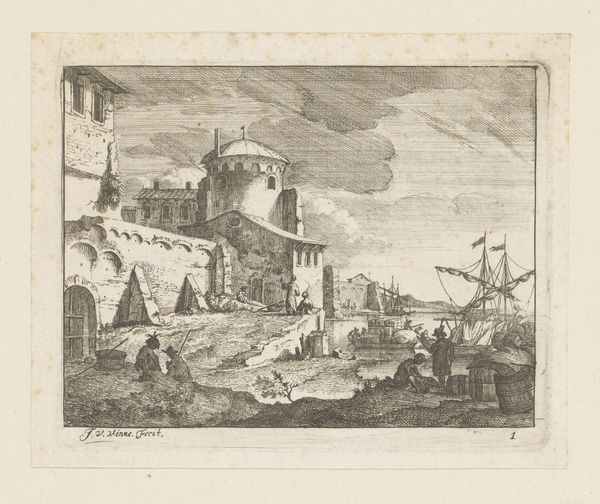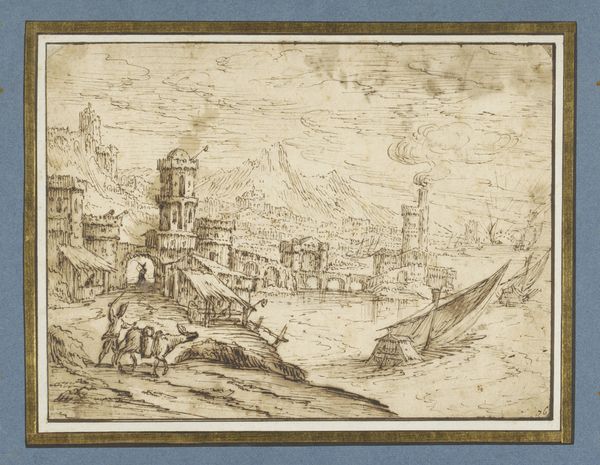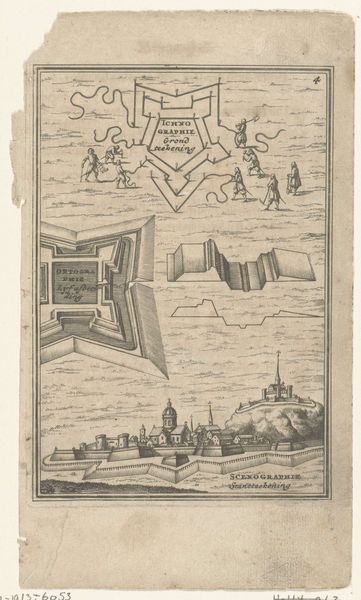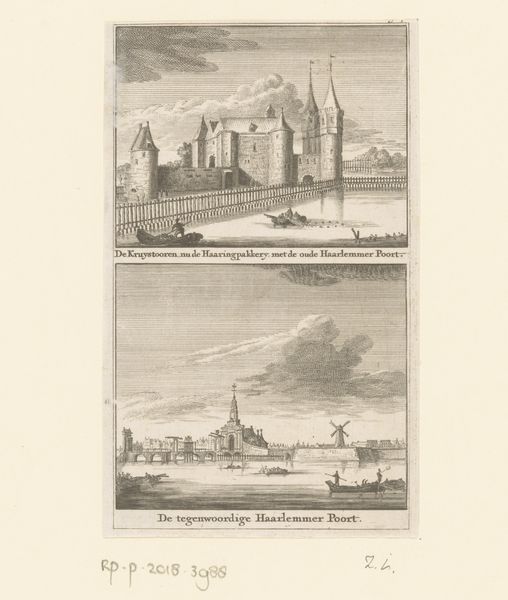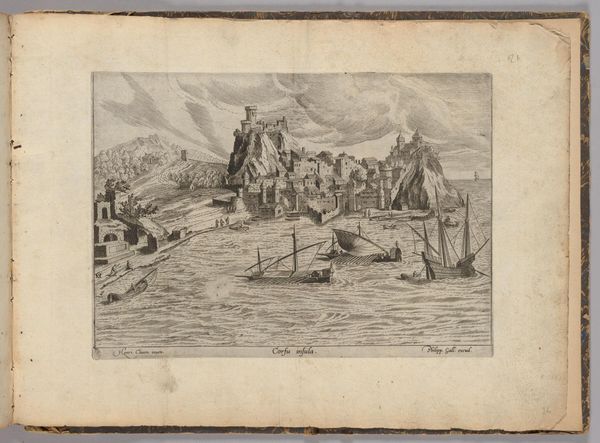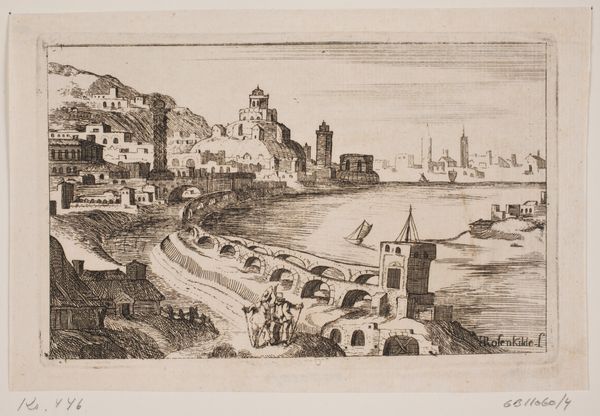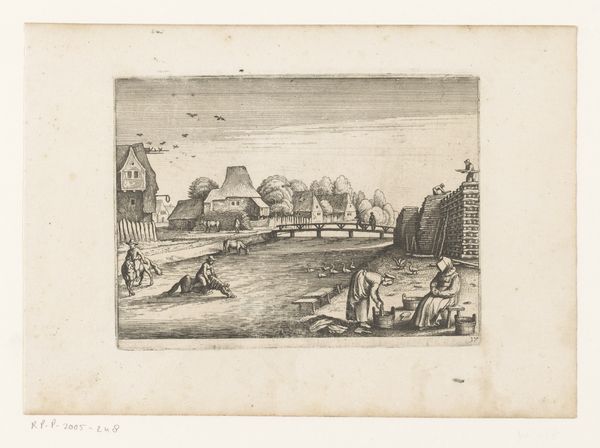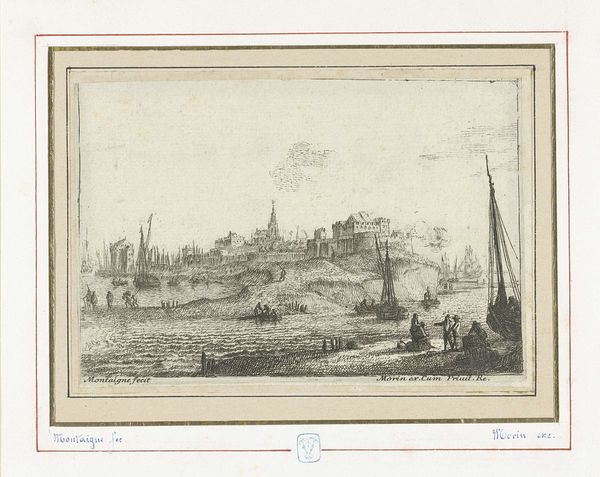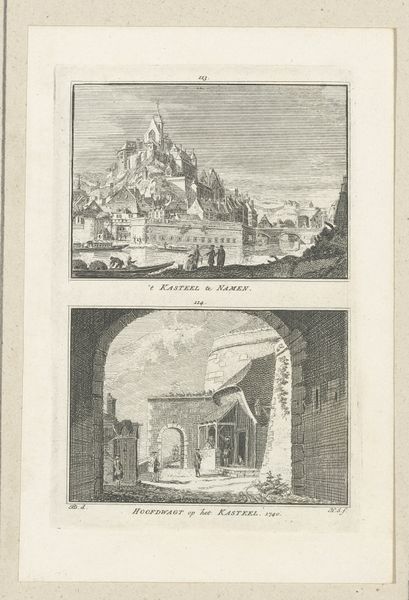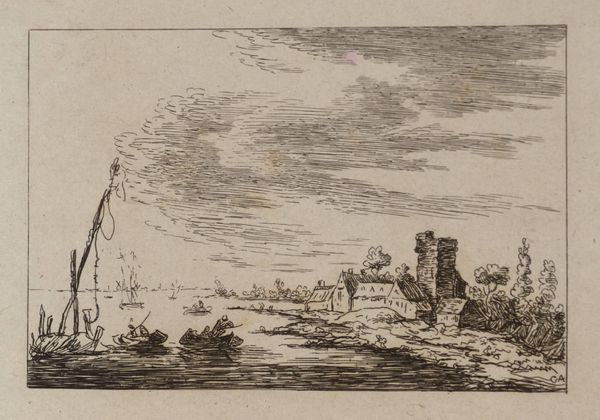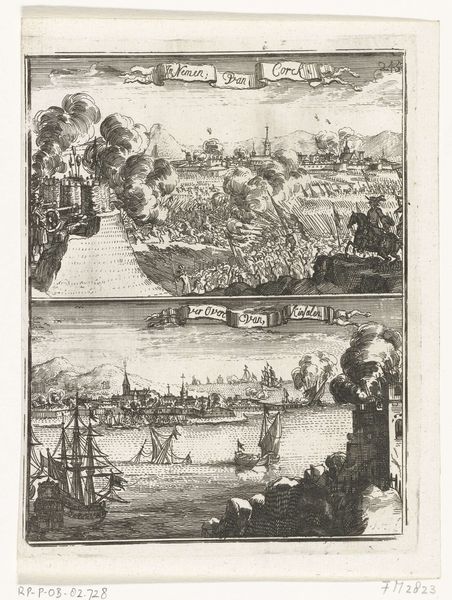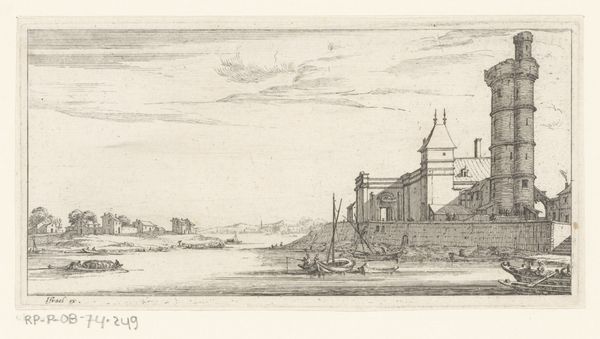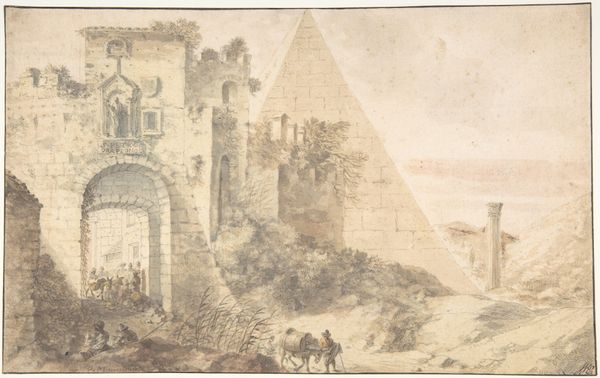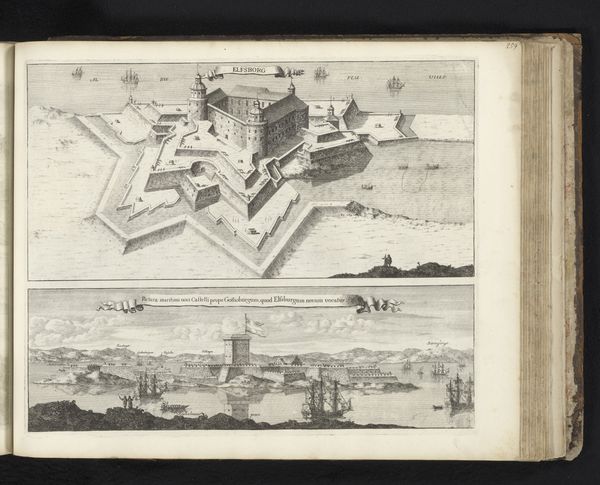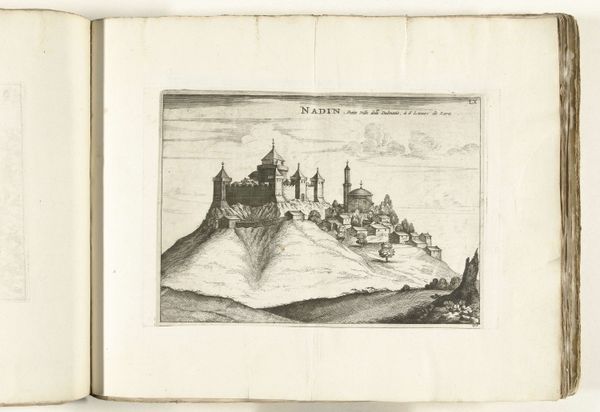
View of the Mons Testaceus (above) and the Pyramid of Cestius (below) 1690 - 1704
0:00
0:00
drawing, print, etching, engraving, architecture
#
drawing
#
baroque
# print
#
etching
#
landscape
#
etching
#
engraving
#
architecture
Dimensions: 13 1/8 x 8 1/16 in. (33.3 x 20.5 cm)
Copyright: Public Domain
This drawing of the Mons Testaceus and Pyramid of Cestius was made by Jan Goeree around the turn of the 18th century, using pen and brown ink, with gray wash, on cream laid paper. The drawing depicts the ancient sites near Rome in meticulous detail, almost like an architectural plan, while using the traditional art materials of ink, wash, and paper. There is also a high degree of artistic license. The upper part shows the artificial mountain, the Monte Testaccio. Itself an extraordinary material artifact, being entirely composed of pottery fragments, the discards from Roman amphorae used to transport oil and other commodities. The artist has not shied away from depicting the amount of work that has been put into the disposal of these broken vessels. This mountain of waste represents the accumulation of labor and consumption over centuries of the Roman Empire, a concept that prompts us to consider the social and environmental consequences embedded in everyday objects. Goeree’s choice of medium, combined with his keen observation, creates an interesting interplay between fine art and material culture.
Comments
No comments
Be the first to comment and join the conversation on the ultimate creative platform.
